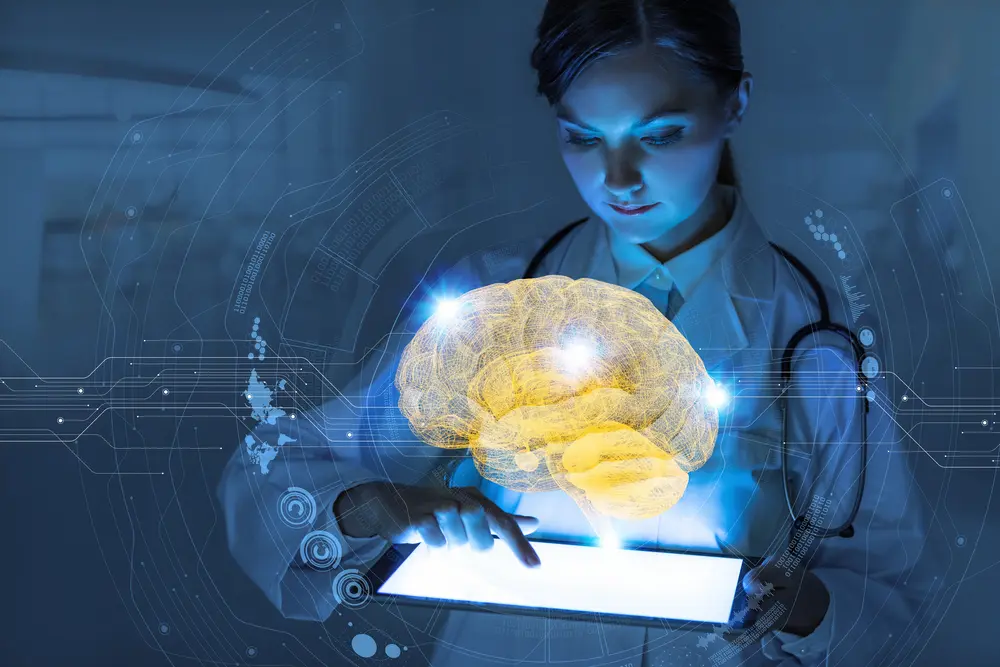
Evidence-based practices like therapy and medication form the core of mental health treatment. These practices are well-researched and widely recognized for their effectiveness in addressing a range of mental health diagnoses. However, more and more healthcare professionals are now integrating other innovative approaches into treatment for even better outcomes.
This comes at a time when the country is grappling with a major mental health crisis. According to recent estimates, 1 in 8 adults in the U.S. now takes an antidepressant, while 1 in 5 has received some kind of mental health care. But even as more people turn to therapy, mental health is worsening by multiple metrics:
- About a third of adults report symptoms of either anxiety or depression
- 1 in 25 adults has a serious mental illness like schizophrenia or bipolar disorder
- Suicide rates have risen about 30% since 2000
- And only 31% consider their mental health excellent, a drop from 43% 20 years earlier
These staggering numbers are part of the reason why experts are exploring innovative treatments to complement traditional talk therapy and improve mental health outcomes.
What are Innovative Treatments?
Innovative treatments are new and exciting ways to help people who might not have found much relief with traditional methods. These treatments use the latest science and technology to offer more options and hope. Here are a few examples of what these innovative treatments in mental health can look like:
Transcranial Magnetic Stimulation (TMS)
TMS is a non-invasive treatment that works by using a special coil that sends gentle magnetic pulses to stimulate nerve cells in the parts of the brain that control mood. For depression, in particular, it helps to “wake up” these areas and improve feelings of happiness and well-being. During TMS, providers target very specific areas of the brain responsible for diagnoses like hard-to-treat depression without the negative effects of electric shock therapy on the entire brain. Currently, the FDA has approved TMS therapy for smoking cessation, obsessive-compulsive disorder (OCD), and depression.
Intranasal Esketamine SPRAVATO®
At Relief, we offer the FDA-approved SPRAVATO® for treatment-resistant depression. Esketamine sold under the name brand of SPRAVATO® is a nasal spray form of ketamine. It’s specifically designed for patients with treatment-resistant depression or those experiencing major depressive disorder with acute suicidal ideation or behavior.
Ketamine Infusions
IV ketamine involves the administration of low doses of ketamine intravenously to manage various psychiatric diagnoses like treatment-resistant depression, anxiety disorder, and post-traumatic stress disorder. It is fast-acting and has been shown to help people with hard-to-treat depression stay in remission after treatment. It’s also a potential treatment for people who may experience suicidal thoughts. The FDA has only approved ketamine use as an anesthetic. So doctors use it off-label for mental health treatment because it has shown to be very effective.
Other Innovative Approaches
Mental health care is also keeping up with the latest developments, especially with regards to artificial intelligence (AI). Some medical centers are now using AI to detect mental health issues early enough for timely intervention.
AI combined with virtual reality opens new avenues for exposure therapy and desensitization in the treatment of various mental diagnoses. Providers can create customized real-world situations and allow people to face their fears in a controlled virtual environment. This can be especially ideal for addressing social anxiety and other modern emotional challenges typically brought about by social media.
Other applications of AI include chatbots and mental health apps that offer non-judgmental spaces for people to explore and express their feelings and thoughts. There are also digital tools like smart watches that allow providers to monitor a patient’s heart rate and other vitals in real time.
Therapy
Therapy provides a supportive space where people can explore their thoughts, emotions, and behaviors with a licensed professional. Clinicians help us understand underlying issues, develop coping skills, and work through personal challenges.
Examples of evidence-based treatments include:
- Cognitive behavioral therapy
- Dialectical behavior therapy
- Acceptance and commitment therapy
- Exposure and response prevention
- Eye movement desensitization and reprocessing
Benefits of Integrating Innovative Approaches with Therapy
Therapy is a key part of taking care of our mental health. It involves talking to a licensed professional to understand our feelings and learn how to handle life’s challenges. But sometimes, just talking isn’t enough. Let’s explore when therapy might need a little help and when other treatments benefit from the support of therapy.
When Therapy Might Not Be Enough
The benefits of therapy are undeniable, but there are some cases where it’s not enough. For example:
- Some mental health diagnoses are deeply rooted in our biology—like certain types of severe depression or conditions like OCD. These might need more than just talking; sometimes, medication or other medical treatments are necessary to help.
- For some people, standard therapy and medications don’t do the trick, especially with stubborn depression. Here, newer treatments like esketamine (SPRAVATO®), ketamine infusions, or TMS (a gentle way to stimulate the brain with magnetic fields) can make a big difference. If someone is going through very intense emotions, like serious panic attacks or thinking about suicide, they might need immediate and more intensive treatments than therapy can offer on its own to ensure they are safe and can start to get better.
When Innovative Treatments Need Support From Therapy
Newer treatments like SPRAVATO® (esketamine) or TMS are great at quickly managing symptoms, but like therapy, they don’t cover everything:
- Although some innovative treatments relieve symptoms fast, therapy is still recommended to dig into why those symptoms are happening. Therapy helps people understand their problems and learn how to deal with them in the long run.
- Treatments that focus on managing symptoms might not provide much emotional support. Therapy offers a space to talk about feelings and challenges, helping people feel less alone and more understood as they navigate their mental health diagnoses.
- While some treatments are good at improving symptoms, they don’t always change how we think or behave. Therapy teaches new ways to think and act, which are crucial for truly overcoming mental health issues and making lasting changes.
Innovative approaches at Relief Mental Health
Relief Mental Health brings the latest and most effective treatments to those in need. If you are struggling with your mental health, let us know. We can help you reclaim control of your life.
